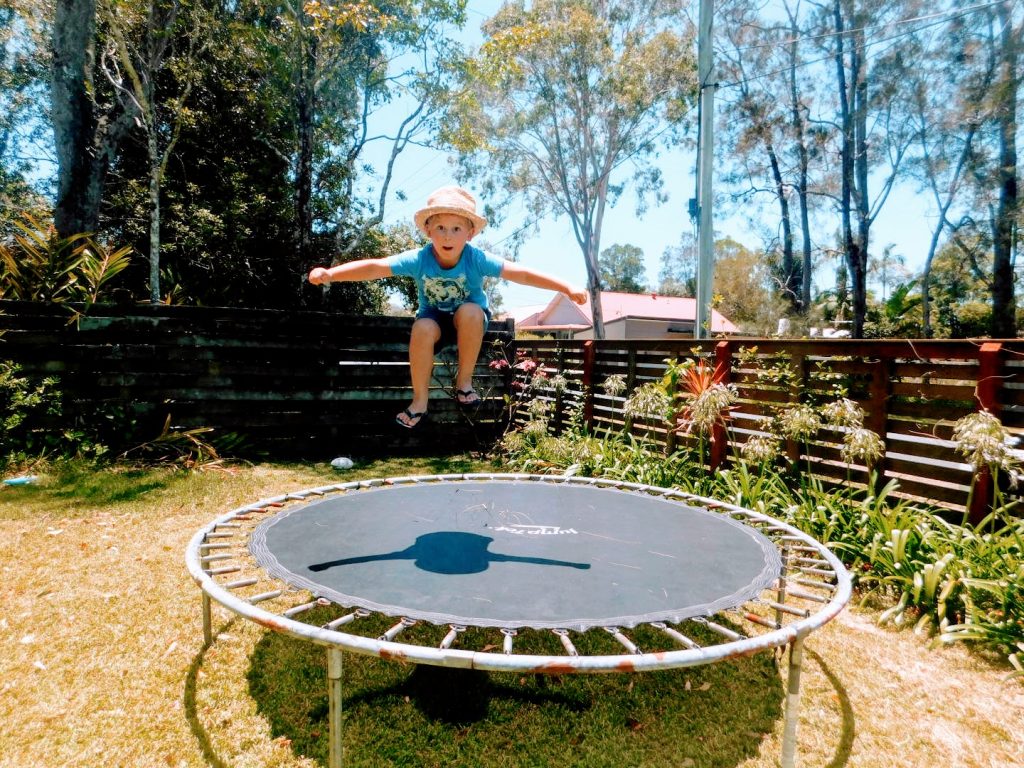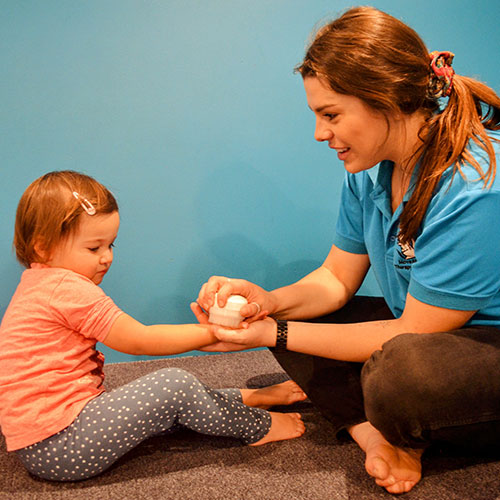By Tayla Gabin, Paediatric Occupational Therapist
5 min read
When a child is in occupational therapy, their journey isn’t just their own—it involves the whole family. Therapy helps children develop skills for daily life, such as coordination, sensory processing, and independence in activities like dressing, eating, and play.
As a grandparent or family member, you may wonder how to offer meaningful support. The good news is that your involvement—whether emotional, practical, or hands-on—can make a real difference. A neuro-affirming approach focuses on respecting each child’s unique strengths and needs rather than trying to “fix” challenges.

Here’s how you can help in a way that celebrates the child for who they are and supports their occupational therapy journey.
1. Encouraging Follow-Through at Home—With Flexibility
Occupational therapy sessions lay the foundation, but progress happens in daily life. Parents may have home-based activities from therapy, but with busy schedules, extra support is valuable.
How You Can Help:
- Engage in activities the child enjoys—many therapy strategies can be built into play.
- Ask parents how best to support rather than assuming what’s needed.
- Focus on connection, not compliance—if a child resists an activity, respect their feelings and try a different approach.
For example, if a child is working on coordination, they might enjoy jumping, climbing, or dancing more than structured exercises. Letting them take the lead makes learning natural and fun.
2. Being an Emotional Anchor for Parents
Parenting a neurodivergent child or a child with additional support needs can be both joyful and exhausting. Many parents feel pressured to meet societal expectations that may not fit their child. A non-judgemental support system makes all the difference.
How You Can Help:
- Listen with empathy—sometimes, parents just need a safe space to talk.
- Offer practical help, like watching siblings or assisting with errands.
- Avoid “fix-it” thinking—trust that parents and therapists know what’s best.
Even if you don’t fully understand OT or neurodivergence, simply being present and willing to learn shows parents they are not alone.
3. Learning About OT First-Hand
If the child, parents, and therapist agree, attending an occupational therapy session can help you understand how to support the child in daily life. Play-based therapy, sensory activities, and skill-building exercises might look different from traditional learning, so seeing them in action can be insightful.
How You Can Help:
- Ask parents if you can observe a session or if they can share key takeaways.
- Focus on understanding, not measuring progress—every child’s development is unique.
- Respect the child’s boundaries—some children may feel uncomfortable with extra people in the room.
If attending a session isn’t possible, asking parents or the therapist for general guidance can still be helpful.

4. Creating a Supportive Home Environment
A child’s environment plays a huge role in their comfort and ability to engage in activities. Small adjustments can make everyday experiences more enjoyable.
How You Can Help:
- Provide a welcoming space with familiar toys, quiet areas, or sensory-friendly items.
- Be flexible with routines—some children thrive on structure, while others need more freedom.
- Celebrate effort, not just outcomes—praising a child’s attempts helps build confidence.
Family gatherings and outings can sometimes feel overwhelming for children with sensory sensitivities. Offering choices—like a quiet space to retreat to—can help them feel safe and included.
5. Respecting the Child’s Unique Way of Being
A neuro-affirming approach means embracing each child’s way of processing the world. Instead of focusing on making a child fit into typical expectations, support them in ways that honour their natural way of thinking, feeling, and interacting.
How You Can Help:
- Avoid comparisons—every child develops at their own pace, and differences are not deficits.
- Honour their sensory needs—some children seek movement, while others need quiet and predictability.
- Let the child take the lead—allowing them to express themselves in their own way builds confidence.
For example, if a child prefers to communicate through gestures, pictures, or alternative methods rather than spoken words, support their way of expressing themselves rather than trying to change it.
Final Thoughts
Grandparents and extended family members can be a wonderful source of support in a child’s occupational therapy journey. Whether through emotional encouragement, hands-on help, or simply being present, your involvement matters.
The most important thing is to approach your role with patience, love, and an open mind. By working together as a family, you can create an environment where the child—and their parents—feel valued, accepted, and supported every step of the way.
Would you like more specific ideas based on your family’s situation? Let’s continue the conversation!
If you want to know how you or your family members can support your child’s Occupational Therapy journey, talk to an occupational therapist for further guidance. Contact MoveAbout today. Check out our Facebook and Instagram pages for more education regarding sensory processing and regulation.











